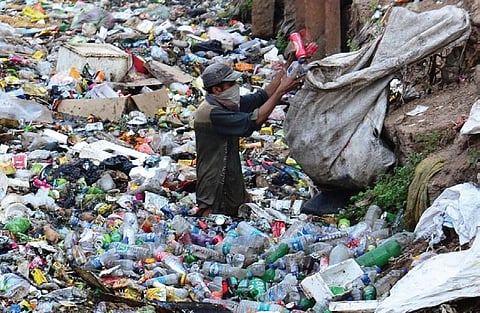Indian government fails to submit draft on plastic pollution to global panel
NEW DELHI: Domestically, India banned single-use plastic (SUP) last year but showed a lack of enthusiasm for participating in an internationally legally binding treaty on plastic pollution. India is the fifth-highest plastic waste generator in the world.
India has failed to submit a draft for the second session of the Intergovernmental Negotiating Committee (INC-2) to develop a legally binding instrument on plastic pollution, including the marine environment.
However, countries like China, Nepal, Sri Lanka, Bangladesh, the US, EU and 62 other countries have submitted their draft. The registration deadline expired on April 28.
India generated around 3.5 million tonnes (mt) of plastic waste in 2020-21, while it could recycle less than half of it. However, the per capita consumption of plastic in India is too low. The per capita plastic consumption in the United States is 139 kg, in China, it is 46 kg and in India, just 15kg.
Despite lower per capita consumption, the government banned SUP on July 1 last year. However, this ban could be more effective on the ground. The second session of INC-2 is due May 29-June 2 in Paris.
The submission of the draft was voluntary. However, it is an important document where the member countries propose their components and elements towards an international legally binding instrument.
The submitted draft would become a basis for some provisions, including core obligations, control measures, voluntary approaches, implementation measures, and means of implementation. This document could include both legally binding and voluntary measures and help the country better position itself.
“Our efforts should not be doubted as we are the only country that bought global resolution on single-use plastic in 2019. It was accepted as a voice vote in the UN assembly in its fifth session,” said Amit Kumar Love, scientist, Ministry of Environment, Forest and Climate Change, who represented India in the first session at INC. He said this inter-government negotiation starts under the global resolution framework only.

